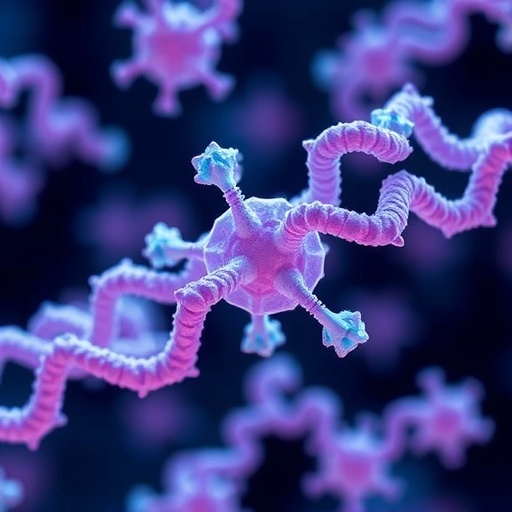The rapidly evolving domain of synthetic biology is on the cusp of transformative breakthroughs, primarily driven by innovative protein optimization and design techniques. These advancements promise to reshape the landscape of biological system development, directly impacting the efficiency and functionality of synthetic cells. As researchers delve deeper into the intricate world of proteins, they begin to harness sophisticated tools that allow for the meticulous tailoring of protein characteristics, laying the groundwork for more complex biological systems that can operate with precision akin to their natural counterparts. The potential implications for medicine, bioengineering, and environmental sustainability are immense.
One cornerstone of this development is the ability to create proteins from scratch, or de novo protein design. This capability transcends the traditional bounds of biological engineering, enabling the generation of custom proteins that can perform specific tasks or impart unique properties to synthetic cells. For decades, scientists have relied on the existing repertoire of natural proteins, but with the advent of novel computational methods and experimental techniques, the possibilities for engineered proteins are virtually endless. This revolution in protein engineering allows for bespoke solutions to a plethora of challenges, from drug delivery mechanisms to biosensors that can detect environmental toxins.
The overarching aim of bottom-up synthetic biology is to construct artificial cells that mimic the complex functionality of natural living cells. This ambitious goal is fueled by the incorporation of precisely engineered proteins into synthetic cellular architectures. As researchers undertake the challenge of building these synthetic cells from basic components, they must tackle the multifaceted nature of biological systems. Standardization becomes key, as creating reproducible components without the inconsistencies of natural evolution is essential for the development of functional synthetic cells.
In the realm of protein optimization, iterative processes are becoming increasingly essential. These processes typically involve multiple cycles of design, testing, and refinement, allowing researchers to hone in on the most effective protein configurations for specific applications. Through techniques such as directed evolution and computational modeling, scientists can iteratively improve protein functions, enhancing their stability, activity, and specificity. Each cycle brings them closer to proteins that are finely tuned to meet the demands of complex biological tasks, propelling forward the field of synthetic biology.
Current capabilities in this domain are staggering, bridging gaps between theoretical possibilities and practical implementations. With advances in high-throughput screening methods and sophisticated bioinformatics tools, researchers are equipped to explore vast protein sequence spaces. The ability to quickly identify and evaluate the performance of numerous protein variants significantly accelerates the optimization process. Such advancements not only empower scientists to engineer proteins with desired functional traits but also facilitate the discovery of entirely novel biological systems that differ fundamentally from those seen in nature.
Integration of these optimization tools into the pipeline of synthetic cell development is now becoming a focal point of research. It is no longer sufficient to simply generate proteins that function in isolation; they must also be integrated into broader systems where they can interact with other cellular components and respond to their environments. The integration process poses its own set of challenges, requiring an understanding of system dynamics and the orchestration of multiple components working in harmony. Addressing these challenges is essential for ensuring that synthetic cells operate effectively and reliably within their intended contexts, whether that be for therapeutic applications or environmental remediation.
One promising avenue in this integrated pipeline is the incorporation of automated systems for synthetic cell generation. By automating various stages of the cell construction process, researchers can significantly enhance throughput and reproducibility. This automation can include everything from the selection of protein variants to the assembly of cellular structures. Combined with active learning techniques, where algorithms are used to optimize protein and system design based on iterative feedback, researchers may soon be able to design synthetic cells with unprecedented complexity and functionality. The ability to rapidly test and adjust designs in a feedback-driven manner may lead to breakthroughs that had previously seemed out of reach.
Moreover, the implications of fully optimizing protein systems extend beyond synthetic biology; they could reshape our understanding of fundamental biological principles. The ability to engineer proteins with entirely novel functions could illuminate pathways of biological interaction that are currently obscured by the limitations of natural systems. Such insights could pave the way for new therapeutics, biocatalysts, and sensors that capitalize on the properties of engineered proteins, revolutionizing various fields including biotechnology, pharmaceuticals, and environmental science.
In conclusion, the intersection of protein design and synthetic biology is a fertile area of research that holds great promise for the future. By harnessing state-of-the-art optimization and design techniques, scientists are poised to redefine the capabilities of synthetic cells, ultimately creating systems that may accurately portray or even surpass the complexities of biological life as we know it. The realization of entirely new biological systems that operate independently of natural evolution could fundamentally alter our approach to both biology and engineering, offering unprecedented opportunities and challenges for future research.
As we look ahead, it becomes clear that the pathway to synthetic cell mastery lies in the continuous refinement of both proteins and the systems into which they are integrated. The collaboration between disciplines such as molecular biology, computational science, and engineering will be indispensable for overcoming the hurdles that lie ahead. As researchers continue to innovate and push the boundaries of what is possible, we are entering an era where the design and optimization of proteins could herald a new chapter in the synthesis of life itself.
Subject of Research: Protein design and optimization for synthetic cells
Article Title: Protein design and optimization for synthetic cells
Article References:
Frohn, B.P., Kohyama, S. & Schwille, P. Protein design and optimization for synthetic cells.
Nat Rev Bioeng 3, 645–659 (2025). https://doi.org/10.1038/s44222-025-00318-1
Image Credits: AI Generated
DOI:
Keywords: Synthetic biology, protein design, protein engineering, synthetic cells, bottom-up construction, system integration, biological functions.




